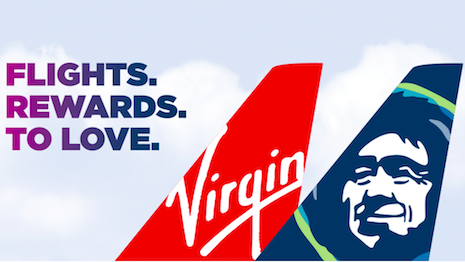By Matt Asay
Virgin America unveiled its first mobile application earlier this year. It makes checking-in, selecting a seat and upgrading a breeze, and even creates themed Spotify playlists based on travelers' destinations.
For most consumers, it was long awaited. After all, other travel brands, from Delta Air Lines to Marriott and Hertz, have been in the App Store for years.
But consumers who have used Virgin's app are not complaining. Reviews suggest it is in a league of its own. That is hardly surprising.
Reservations about apps
Most of the world's leading travel companies have struggled to deliver apps that function reliably or offer an engaging, intuitive experience.
For consumers, such mobile misfires are not just irritating – they are unacceptable.
Thanks to companies such as Uber and Starbucks, today's consumers expect smartphone apps that simplify their lives and anticipate their needs.
Travel brands must catch up. Treating an app as an afterthought no longer cuts it.
Mobile devices have become integral to our everyday lives.
About two in three U.S. consumers now own a smartphone, according to Pew Internet research. We check these devices a whopping 8 billion times each day, per a Time magazine report.
Businesses new and old have responded with a steady stream of new apps.
More than 2 million are available in the Apple App Store. About 2.2 million are available in Google Play, per Statista.
Standing out in this crowded field is difficult for any company. But it has been particularly hard for travel brands.
Flyers often complain about how difficult it is to change reservations. Hotel guests are sometimes kicked off the app, requiring repeated logins. And some apps are simply limited in functionality, with reviewers urging fellow travelers to go to the company’s Web site instead.
Behind many of these problems is the mistaken notion that a mobile app should simply recreate the desktop experience. This ignores the fact that mobile devices are not just a complement to desktop computers – they are an alternative.
Up for the ride?
This summer, in fact, more consumers used tablets and smartphones for travel-related exchanges than desktops, according to Adobe. As we look to the ongoing holiday season, mobile will continue playing a large role.
To better serve their customers, travel companies must step up their mobile game. This should begin with looking at the most popular apps.
Consider Uber, the ride-sharing service.
In just seconds, a consumer can request a ride, see exactly where her driver is coming from, and receive an estimated arrival time. Since the app is synced to a credit card, there is never any fuss about payment.
Starbucks' new app, which debuted in April, is another excellent model.
Gone are the days when coffee-lovers had to wait in a long line to get their morning fix.
Now, consumers can pre-order and pre-pay – and simply grab their coffee when they arrive at the store. Mobile transactions now represent more than 20 percent of Starbucks' in-store sales, per Geekwire.
Consumers now expect brands to anticipate their needs and eliminate time-wasting interactions.
Indeed, one recent survey found that most consumers credit simplification and convenience as the greatest influencers of mobile app satisfaction, per Adobe.
To be sure, some travel brands are offering impressive mobiles apps.
Starwood Hotels is using its app to eliminate the entire check-in process.
The Starwood app can notify preferred guests when their rooms are available and provide them with a digital key. This allows guests to bypass the front desk and head straight to their rooms.
At the Prince Gallery hotel in Tokyo, every request – from room service orders to wakeup calls – goes through a single-point-of-contact via a mobile app.
Through data analytics software, the hotel tracks this information, along with intelligence on room temperature preferences, light settings, and the like, to offer a perfectly bespoke hotel experience to all its guests, per God Save the Points.
THESE APPS offer just a hint of how mobile apps can improve the lives of travelers.
Imagine an airline app that offers a countdown to when a flyer's zone is boarding – or a push notification when an upgrade is available.
Or a hotel app that, through geo-targeting, knows exactly when each guest arrives.
Customers will continue to expect more.
That is why, for travel brands that do not prioritize mobile, customers will start traveling elsewhere.
 Matt Asay is vice president of mobile at Adobe Marketing Cloud, Adobe Systems
Matt Asay is vice president of mobile at Adobe Marketing Cloud, Adobe Systems
Matt Asay is vice president of mobile at Adobe Marketing Cloud, Adobe Systems, Lehi, UT. Reach him at [email protected].
{"ct":"azY4xBlw8sfq1XLHHrbI58lSsHgr3U4LFTY64bWWV1XefSoWS3rdhSUhXAcmWsBkhXxYZWyFGodaV2hlsZ8qiB8PX+3w3i0HuLL8QdDDBbqjTVS03G+xAj1OyE+6QT53s6HpCgfTNQmatdobohMa8CEq4SLamNSJLkNkWaZ\/zUhQFl\/3uMSY2aV4+j7REB9psDFaCzLfi9NaYyLUDgvDTQsb78aiQTV4HcKVDcaXtYHzP11prLt9KYXg7A00FuJX2RfYYHGOfUHJy3RxZQ5iZhKvw0d7F+g6MNaO40bOO\/WmapGIs7xMxGWmvghBjx1Wi\/azY3Xmd51PrRgBzylN7UJsnDRHazgRHCTr3laXgWQbK7e25WGj\/CsuY2TyY0+vPbpaOR8WSaKly4wEB0zhmJQZsd47lJF+OvpckYg+eROgbxLFPcN+\/k\/xUXL49onqIiqFhHaMbFU2kXc3FfkL+Dr8ORoo4wGmrwC37TYmBQMicojgtBxnWrA71IDtVHG3AZS4Fdf3ukBeCx\/xjllGUA5awG56Mq\/81X81L2a1gs86PXCUhOteQHkmUhZBNexJeD6UDm5Q8ajcMDoQ\/nmvjYdgwBoWuXMIwByigKLUtVjNDPqliyJn3RQbG3i8vC5wBeAO2iDA+23tXU0cuk99T7Oc60Ztmgmjo8oOr6LNF5wQuxlirHlP+jTf\/q\/R3HAtErrkg0DYF6tb9d1vWElvBAS63GZNnls\/xWFPVY5XhWpS5rX82MXZ2CCtMLR\/XKAFQEq0\/wJMuIGiwstkN3b+h7av9SacrqjWEBRDphxENBWIzMPEp6WGYZMd3x4mpzn8r8viZgi7zHw\/kBU3ZGJmyJlRapnszxEzV\/wH3PWua427wV9eEmpXTpgjqvaFCibWqBgyVsalaUWFVlt+w0pUcm1zlGss7k46NS8xOQFjFoNFW00akoGkO4oSLfpj1GBxv3S26paRgsKqozhbUPIfNP6oFxXvb6VPGG+pVuex1\/U0FHCb0n0oDSpCpo3+vuc60P6tkqKyIazkqPCF\/VcchiKtElHrXk5oc6Lvx\/51yzRDq3k8Lt1Z01HXzcwtX6Q+RqCWsTmbRsXphxTfbDhToK\/bBSwU8pAm7iR1pUC2O\/EBlaXbBtG\/qeKAgxapvAtEYZr8BCoEZzRqhZyTojuJxYSIoaoyOH8xoUJxsOAAPyW7sS2AH5cPbuwEq\/D8hdQxoSDZIitZdANMileIScNmr95Mr9KtQqp0XQ4AWwfrvM1LXQaBY7vTxCCurP2TYSbLcY1YHMMhlU7xCupcM2c40aRm96AiyGmPgmAJL6ByuaabgGJhfUxVyxjYiyVcv6eI9cgY\/O108GJqpNFIh+yjK6SEmSC2\/Do8w054za6GIhVcZiWeYU8DTyMde4KL83O0DSODlQNVeZeP9M+eCYG6Vbq0iZkIypGUUdTPZu+4pGGOs4RnO70pr10NQ3Zht2ESY3IDmGSh7wfyHP7FL+sMM6vLnfI7laUpmSjl3GGR1d1qNrmLnEnLTfEhlTYfeig0jVAQIhgUgqK5MvmmF8y7K6s6afWzAslOJxZt\/Z+1VTESVJdsPGuhHVdfLVwNSRth998R3lZ\/VUzH3ZVXsYJOqfXLHd\/+0vDpdWwulsu+n6kERdENiv+axZHC0+8cbJFO2WlOpSd9BBOa567CNK0L2Rv4dMBk4Zjh49WyVw5RXHJlhgNdYkgYLB47KRAvBZAmFnroKDAM3isWnQPKo7XsuFBvr1GLLGrcXTzK\/5kk1UhNs\/53ofO5BJm0pFr9uL63XyLOM0a35y2vA005mL+5m7hhN5IVKcwOZxwoyEOO71GxFhb1auX3khbAKzlq9XLIElfVq9ODMBSM5ZAY5dbWGd8AoXr\/oekFTsIz5PUFOE1lsUGDD0ozxwGu\/bXuD5cdx7Ru92LS7dr0U7oE8lOc1NuJQBGXBfk1peIjWQtwKaKMFNzlRehh81cuCWU7mTpdA2g+f7V7iqZN+MPcnywM25NhKMoTyySMe+gHYetgxq2qtXGhO5Porp0VvUpiMORGF1PCLQCIqCRKqVyn3UStCMqs\/0asofW\/4j+Eo+ac9elTtvYJIMP\/dsGt5l8F8p4OkOWgCpxOwU9TxqYnPwIfiqkCLh3gqXzhEooXSFAB4vGXKsJgjZVnOm7Hzm3dhupaDCD0znW4lqfaAG9o8idRybmwP0bJzKC4F7oFv8hlv\/I9GviR2dGKGFjaQPZ0oIGWxq4DZg7PL5DNz7xOxmIFXq8UVkY\/0GVCSJPhx2Cj7M8g+jPUaT9J2+Z58fCHWl7rIXGLc+kzU2fjo1XMae7OAlZHtbXYKrhDH3ItP4NLmhee0dQx6g0oUcD2cC+7BqiHQ3FfYGnpdh60Z\/vTedMifs2HFsXmlV7l5mL7GGvavzSPLY61GxWum3lF65yEVaiSEtjG2\/PFPy0UNVvDVg6oqP6m8ULHCZymsthtq8tOezbzNGy\/EVY7i3XjOJifltuwM+aEhu+pAN63r4c+i8la4KKfcIgBnxn7+zhTnkKVhguxi\/Du3YCSd+3Y9GS7J2BHpdrwD5E5yxaM7w2qU2kWWeqQSOo3J8wCqm8adWMhb11bcRLib39G8XWDjjxuD4Nea6Nm2+UzR7b8HdiRHVRzrVYgsswMZAPogZ0VcB1NszwmGqHg6mQ6M4vg4wNG1pFWTjH2vX7dxtW+ymNBk+F9diKDjbsypWUtS0zzdxvw02IhmxFEI0ifeL+mOrQZ5hS5MO5MaTEb6FMnxZ6\/6cIWgp374PyT9U\/tlARJ2RZw66SRqRxWP+zFFd+Q42G1jwA9OLeq4BXzeBp0ZI+HQ3aE90NMbAOpI+LYV5DFcGjj7Si9pf70bNWj+ChxITu5L0gpzD20jLHASMb0qio59X7dsoCCdxPojspnmGAkwqQBw9TNsUzOpNH+0cEXtNQn6mJzmjm1N5CSd+nt5+MjjrQwOV+HBZAVZFyE7xCJNOfCJUCoGkha9mKNdpxn\/3YmDx\/49PX1jTlMToWeYne07boSSOGKBvkrZ\/+3HUPYwFp6OGlT4pzRu6x4moVpiCtH4G76SadYlspd4DkVpf8bY1oiFQY4nvFYRQC9xQ9M0UANmPqFyi+HIJO\/zoImyChxBBdIwcbJEqNkIS+oUKTTy4oE+s24aN8n6VSrJCyNHd9fvMndtI8VLwy+TRcir0vcth0ADgvKTL5lU6ITi8v1MdM6Uzdygv7zWU7fcL0pBdOrld+e2K9HD1P7EQxPfQzNbJ9YQddDXYU0SPkzb\/U5aN9cj4ufdFPqUvhd5t\/5OEAnNvC8yYzNtsqHGDa5sWPmUK4JHNrpYdhL0fa+AbbqwvlrD7pOz6+2vem0P7dbdTyT\/P\/aGQAkHnMgYWgaHsHICl9nBLA2TogPChf3DJiz5465OEvgBTpryQVu\/03HhPJJYxTM9xV3TGJ5fYr+HgXcytPGvie1F1jJZLSAhgLvvD41uMQYbgTtgpiB\/LmZqJsJOv3obwIdn3Po7kiqD4XZoaqL0qX+xvy+R\/0wkGiAnsx8AXCf1ms+vZgIYCIKkbhGDs+P0+0aiudKumTShgRRZnbR87H0cyPZ\/2hKuXFqZpSw6KCRcYD3fzsAD5NKhjWRZybXHotAhlfZKRwQPkpvDZuzXg29pk+249SLS0Fjgn5As\/NAr6baDIgF4xshSVWp8wLEIrk2AMvpsSI02KJaSvSR+EMWGO0hEJNng9Gjoa1cW43qSCi7BhDI6NB5\/cjklTKhwcaTvJZozXiQUnPV3LYMBODrQX\/pQNnxI4MpAgrYZmDYCTwO84M4PJ6j96b6J5qG\/snSjgp\/V\/9yFrN3HjpqvmLcC1LBVJH7oPBdlICY5a7nTHnERIhY2Aivh4OZJTYTvDSg7wKmTTPDIzjySEOSLLUFP\/yJKebOUef8Y1dTAp6CdIOFmpgBBGX9xRVejsK5SHR04ftYqEMlP0DZpCE9Lpd5Cj\/cz2XA9nmO059L8bi07NND57ciGvT9HFdEJvep698tWF4hzH3AQBRAwLmHj\/bN1D5qeZNf838tt2eNQPrbBwG9o1CCRAdlnLxwfFQGWstLfyQltkbLK1nsRkO8ytAe9x4ld95sYJtEonu4MC+Ec7SAKXEEg8j2phTJdpbbCM+XQJUD\/U4BTX\/lIhxFGS8dwIFuzjkTQQhdjWXCJ1+Wst2Tw5P95TtuQEAsVeBzdOicM1+I7WbhDQARk6GGJ4uWkJuWX1mBEGZWPWSNEYITeA+gBMZXXefTlgJxwhNArhJrP1toLoc8djwOrC2cQTwbqkSM6tL5MrOg1Fo3wLX1QyHW035jweF7njtF+cTJPPQfdRPXwO9IwOD+c6rBkE05\/JZQmIwc+4ATJqlECxeyc4rp5Uo2mkXK5zKDgw4\/ezISPTvaMhzzds8kPG6Xipm3EhmweGEajCNeHV\/gMTdH+1PP+NGRCKMJP\/sBX0CN2BArN10Y5jKMf+8tR+14dEUJRpk42vPqYHB9\/IKiUTaR6mhn8w\/FxoQxEMm+Oy+TAZHQn+ICSCoZ0mEGz2y2z6fdP9Z1G4tg4GNKtyeI7XjeYjywF2mfGNmvvSVBBnN\/1PWPEexCtuGmEjQz0Af9IW1o0wjTNLJCcm9XfE8goB2xMtXTTawANP97WY2HjETdjE\/2I1MoSSmlTRosMQ0LHd2\/izvtVRtgpUTuWZHMsTUe1SqvJq0ETAmc03fJ\/zUCJtV9VQ\/mCZzEmRBjxgUj0aMQF7GFUSE74dShrnDcJP8QzBYh97+AJ7nR0beMrVqhEvl5S\/Jqi3vy5vRbRBQBn19cWAnPLug5GR9d240yAo4gNZXK\/QR5M2Qp+vfZ5rYU33OOuwSnzWd7mocEQOo+9ZOyO75nyMGV0zQJ4T0Vo\/Rrx3tkqbHtmSFsQezG4FYhncGUvJtoSLHv\/ExuZ8LkdSmqefrBfVsMsrywT\/7lEAp0EWBLhiWDEM74nGhZVAECSJfqdgkzaY+PXBLS7RaU\/\/IB8PfjXMzjkdlMUZwTCDTDaHKmkQMuGVROd4sEMoqGa234\/od1bwkm0RjNcdez9e6o0mBu3nVb4ZTzDEw9+BDgRTL0hZrWyQc+kaoayGTvg7ItFDT4M1b2Wubn5UQBnSHRUeJW+694+5BLoQCFPweG1sNt0e8U\/5AmBm4UPJBBCG\/5Qmu6Q\/OfLoLQxQ0Egrk4liYwLQj0SAngcHkd+68+Tkbxfbm1l3Jk5QrmoVk+L3ZyBAanOM9nRro9FXfKQ6e1cCtkL6VlrcLKI00jrdV4\/g0mgb52XiscG7eyxrDjupC3O+G\/CXNIQ84O29+NB9u5Nexr1JWM37dQx0Av4rFonm236PWZJz6iu9dTEBMh+imeJftaUmKuVLZDjHStxrUoItaDAenWaS3D0FiluR5lmDBPR01zEEwXfMIUQtALsa+F4gCJyKhs2ErETFby0K3jQ0lRLgm+hq4UCzaSuqfAoTYNsIhFZlYM8h5Oej\/wmsQ1Yg13Xu6VQGEht4wewteF612eLWx71rAdDC9YxIq\/\/tI\/4QCZhlit87M8tgDMo1TE4KIdV9Bm39crVVvgiay6wlBTsrzFw9+VHoAFPM\/RGGlr6J8J\/3+rx0mGpK47ZufxZqTWeeGaEmCprJqKOZREYjrU+AX2OFSNAZD6qII7QvKEMCszvclBqmSMJIJUEIAtQ2QqsakuXgGLac2Ijkgd1ExfGxvjOSZLx4PRBZAYzWTKAZzqlcLcJb1bkGukxWjZHRSAIvC7wZNmTWqIAnMVB2wanm4JQIhQYu9m0rNKtyzviaW3E2D8qdyomL85T+J\/Xj6A+9KXGAk1oKYBniQxfsKWSXqiOqAX4yK6CEyxk5NkFysB+7zKMGKg3in8EnoiY5Ahv0kLuG\/s++Vur5jNAUmHF2AdGm9+nJDQ4pa0M2hVK2ZxAodfZja9eJznXrHaQ\/TB4m7zEOTRozfa7lRylaWLCYhEKdykxiKiNdDsoI5dL4FfPNoEVw689dinXG5LmhkTCKiuZXgcYXDURhq\/Cqnkr4CP8aE+txklGyjtgH1qVE\/PX5VvLOe4Aa6QFpfM+0d93FBrKNzMalSSoBLRo0QDRnjpbz0jl1vaS1mbEHM7bahztK0DJqbQHtUhfb6X1YJX4a37qIH1O1SSy4mclOckO2gQNeVyLY4\/fZGRhfjVeFTXiaRE9TPp5M090JqTEXXMEzcUTq06Xv\/CbhMDANeTPZg2C\/x3rnlqYN\/PglKcJGB+ONRK3uFZ0NhWslHWE4owbMJ\/FjCwvbmFJrO58zqrTUCI+5mKm0n7b010Qzg3Buzq1j9NQWJpldy46dhdBcKsxVi4F1P3Ip+FE4+sy\/OgHTmVKBBRuwDdPLycOwcTovdeFAXgATynJZgnK5xkHQZJp61oLbNuxKScVQt1w\/kr02BkQLQsAW6NaZXi8MBCctJRrUL7IspNcK15ECqKhne2CBTDQe10hqXVq8vgzLFL0Px4MQv9C+qu9W2FKcaIxNpcjU7\/+FlQ0j6k5e9ymKsd7Fa9ZMoYPbHqZyzpz95WPbitksb5y+J\/867Mdta0h4Hn+LjY3eJwerJKJF5TkwSp8E2GyT\/ye3wtif2VutcwQJFMDfIHVdAT\/ZJu7oXMnFmMmMPbQd0zXRphOxEufV9g6wWaFO6oo\/QQq2MJKjAu0BNixvqGmTbp\/iMfrJm2yg+YzfgCxpchSbhcj1RNJwjHXMK9d73Not5kVq35vbC8+F027rYXQi3sb6UB7tXdOiKq3MTOzoGJcbpncHUSWoigzEYdctYJj297NIfFJAtXUmAgiVQ9u0NfUqP7jOIdiP6B9C+XciKja\/38zf0RlW4lsuXeOUkXg7wuriXbHLi7Hy\/E+UPf1YlsxevPrZQKTkCO7M+iaZHDEO4LnFq8buoTu0OE94zbdHUZDVwvX4hqh1XMVu68eC0w4U1AI4yL39oJG5xDkYOtEmlkm69zaMPK6uHBkxfFjv9CwOwh\/tnTesGPlhtcWeIh03yUKSNo7Ekd8aJTB8mOoQlfSvJnhcJ7qpK+X71o7ypQHOlyhRqjKxxlrt6dd\/PHvhvLej8eYw4Lwg9MhI1XJwaDSOvbKUVJKuq0uieEu0tyIIUlojFZSiea5M57zG03dCHppYuHEGxyAGiT9uEbjb8rxXoqB4DUxuQA15uhnVoxWQliw1eWBluAE7Py3pBSyXVtJ7LtPyOYiIKxNuiBvQU2xVrbQ9yKH6u6Bu3aNuFhzO85I5dWjqh9wbn07a572ua4v0c8tlubtEi2TH2hEjLyb9NkpTzg9k0IMvvtxKZhs1gNfbgJcparT\/JFfCGpeqfAHJm1Y+M91e\/WcTuYcF\/TaFDPBE3syynU+PBf7GJd01sbSMkKrQTruHStCcTxhNtcYBYRCuqZ5Z5cP1NYYlfRXVw+tQRV8IcvQ8SDVFgx5y9VQRA3iWni6L2Tbu047szCbwN09Aq9seosqp9CUD3BkuAkFP8brZesSNEXBFiZhAHINyXnaMcYxU3ARj\/c2wvsanKBn0SSOoew9U4gwrWu9BHf4kOOft2XHmE9EDc3ZgNsyvOKMOHxNpFbsPN6yXiyID6z0VPB7W1pd4hZNLQOm36v8GwcVOnmOQVH8SEasBzfmX75pUJ6q7rRiXIRcqO84Zz3VQfCVbgfLA9gt62s1uaGdwJXKggWDG1rYp2e","iv":"89e5216112c278c301e4e5147783d0ef","s":"45fc11dfdc2479fa"}

 App's no flight of fancy
App's no flight of fancy
 Matt Asay is vice president of mobile at Adobe Marketing Cloud, Adobe Systems
Matt Asay is vice president of mobile at Adobe Marketing Cloud, Adobe Systems